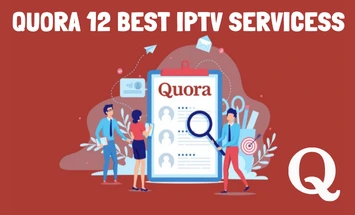The emergence of IPTV (Internet Protocol Television) has undeniably revolutionized the way many consume media, providing a more tailored and flexible viewing experience. But with this advancement arises an urgent question regarding the legal standing of various IPTV providers. In this piece, we’ll delve deep into the legality of IPTV services, their associated safety and privacy risks contrasts in laws across different nations, and some intriguing legal cases.
Table of Contents
What is IPTV?



IPTV, standing for Internet Protocol Television, is a digital streaming service that delivers television programs and videos via the Internet, bypassing traditional satellite or cable broadcasting methods. The popularity of IPTV has surged due to its flexibility, user-friendly interfaces, and tailored content delivery. However, its legality often arises, especially when considering different IPTV providers.
Reading: Why Use IPTV? The Future of IPTV
Is IPTV Legal?
While the technology behind IPTV is entirely legal, the content it delivers may not always be. The legality hinges on the source of the content. Licensed IPTV services offer legitimate services, ensuring they have the right to broadcast their content. Conversely, unauthorized providers might stream copyrighted content without permission, leading to legal quandaries.
Reading: Is Xtrix TV Legal? Xtrixtv IPTV Review: Premium IPTV Subscription Service 2023
Legalities Surrounding Illicit IPTV
Several laws around the world condemn the unauthorized broadcasting of copyrighted content. These laws aim to protect the intellectual property rights of content creators and broadcasters.
UK and the Legalities of IPTV
In the UK, it is illegal to stream copyrighted content without the proper permissions. For instance, in 2017, a man from Middlesbrough was ordered to pay £250,000 and handed a 10-year prison sentence for selling illegal IPTV devices that allowed access to sports content. This was a clear demonstration that UK authorities are taking copyright infringements seriously, ensuring that IPTV providers are not broadcasting content without the necessary licenses.
The U.S. Stance on Unauthorized IPTV Streaming
The U.S. remains firm in its commitment to protect copyrighted content. An example of this strict enforcement is the 2019 case against two Las Vegas residents who operated an illegal television streaming service named iStreamItAll. The duo claimed to offer more subscribers than Netflix, Hulu, Vudu, and Amazon Prime by unlawfully streaming copyrighted television episodes. Both individuals pleaded guilty and faced hefty penalties, reiterating the importance of operating within the bounds of U.S. copyright laws for IPTV services.
Canada’s Take on IPTV Legality
In 2015, Canada initiated a system that enabled copyright owners to send warning messages to alleged illegal IPTV users via their ISP (internet service provider). For a while, many of these notifications contained requests for monetary settlements as a way to sidestep legal action and bigger penalties. However, due to mounting criticism, the regulations surrounding these notices were revised in 2019. The criticism was rooted in the realization that many Canadians were paying settlements they weren’t required to. Moreover, there were incidents where innocent individuals were mistakenly charged and felt compelled to pay these unnecessary fines. With the 2019 updates, copyright owners were prohibited from including settlement fees in their warnings and from requesting personal details. While the revamped warnings no longer ask for payment, those using illegal IPTVs still risk potential legal action and increased fines.
Security and Privacy Risks Associated with IPTV Providers
It’s crucial to be aware of the potential risks linked with certain IPTV services.
- Malware and Adware: Some illicit IPTV providers might distribute content embedded with malware or adware. Once downloaded, these programs could jeopardize the safety of the user’s device or personal information.
- Data Breach: Unlawful IPTV services might not operate on secure platforms, elevating the risk of users’ data being exposed. This could lead to potential identity theft or financial losses.
- Unencrypted Streams: Many IPTV streams are not encrypted, leaving users vulnerable to “man-in-the-middle” attacks, where third parties can intercept or even alter the transmitted data.
How to Tell if an IPTV Service is Legal or Not



Determining the legality of an IPTV service can be challenging due to the vast number of providers and the varying laws across different regions. However, here are some general guidelines to help you assess whether an IPTV service is legal:
- Licensing and Content Rights: A legitimate IPTV provider will have the necessary licenses to broadcast their content. If they’re showing popular channels or shows, they should have a broadcasting agreement with the respective channels or content creators.
- Transparency: A legal IPTV service will typically have transparent business practices. This includes clear contact information, terms of service, and details about their content sourcing.
- Pricing: If the deal seems too good to be true, it probably is. Receiving hundreds or thousands of channels for an extremely low price could be a red flag.
- Website Quality: Often, but not always, legal providers will have a professional-looking website with proper customer support, terms of service, and other business-related details.
- Check Reviews and Community Feedback: Online communities and forums can be a rich source of information. Users’ experiences, reviews, and feedback can provide insights into the legality and reliability of an IPTV service.
- Avoid Pre-loaded Devices: Be cautious of purchasing devices that come pre-loaded with IPTV services. These are often tied to illegal streaming.
- Location-Based Content: If an IPTV service provides content from a particular region to users in another region where it’s not freely available, it’s possible they don’t have the rights to do so.
- Ask Directly: It might seem simple, but you can directly ask the provider if they have the rights to the content they broadcast. A legitimate provider should be able to provide a satisfactory answer.
- Check Regulatory Websites: Some countries have regulatory websites that list licensed IPTV providers. Checking these can give a clear indication of the service’s legitimacy.
- Stay Updated with News: Occasionally, news outlets report about illegal IPTV raids or shutdowns. Stay updated to know which services are being flagged or shut down by authorities.
Lastly, always remember that while using any IPTV service, it’s essential to be aware of the laws and regulations in your country.
VPNs Offer Better Security
If you have concerns about the security of the IPTV service you are using, it’s a good idea to install a trusted VPN (Virtual Private Network), such as ExpressVPN. Using a VPN comes with many benefits: it can hide your online activity, prevent websites from collecting your data, and stop your ISP from tracking your activities, while also providing additional security for your device, protecting against hacker attacks, viruses, and malware. Furthermore, a VPN allows you to change your location when connecting to the internet, which can help you access region-locked content on legitimate IPTV services without resorting to any illegal means.
Related: Facing ISP Blocking of IPTV? Discover How to Solve It.
Recommended Legal IPTV Services
The best way to enjoy IPTV is through the many well-established, legal options. Some of the best IPTV streaming services include:
- Netflix: probably the most well-known online streaming service and among the first big streaming services to take IPTV mainstream. Netflix has a huge amount of licensed content, as well as its own original TV shows, movies, and documentaries.
- Amazon Prime Video: Amazon’s IPTV service offers a wide range of content to subscribers, and if you’re willing to pay extra, you can also access add-ons like additional TV channels, including Starz TV and Shudder. You can also buy or rent additional TV box sets and movies to add to your digital library.
- Disney+: Disney has recently brought its own IPTV service onto the market, pooling together thousands of TV shows, movies, and documentaries from across its media empire. Alongside Disney classics, you’ll find content from National Geographic, 21st Century Fox, Star Wars, Marvel, and much more.
- HBO Max: HBO’s IPTV platform lets you stream HBO originals as well as a variety of other TV series and movies. Notably, Warner Bros. used HBO Max to release its full slate of movies during COVID restrictions that limited cinematic releases.
- Apple TV+: Apple is also breaking into the streaming market, and similarly to other IPTV services, Apple TV+ offers a whole host of different TV shows, movies, and documentaries, including Apple originals that aren’t available elsewhere.
Conclusion
When opting for an IPTV provider, it’s pivotal to be aware of the inherent risks associated with the technology and the evolving legal landscape. For safeguarding your interests and digital safety, always prioritize legitimate and reputed IPTV services and consider employing a VPN. While IPTV unlocks a realm of entertainment possibilities, it’s crucial to ensure your selections operate within legal confines.
Read the previous and next ten articles
- Best 10+ IPTV Providers for Firestick in 2023
- Kodi IPTV Addons: Setting Up and Exploring the Best Choices
- How to stream IPTV with DVR service? IPTV Guide
- Top 10 IPTV Services You Can Try for Free Today
- 2023’s Best IPTV Providers: A Comprehensive Review
- How to Watch IPTV with Xtream Codes API


